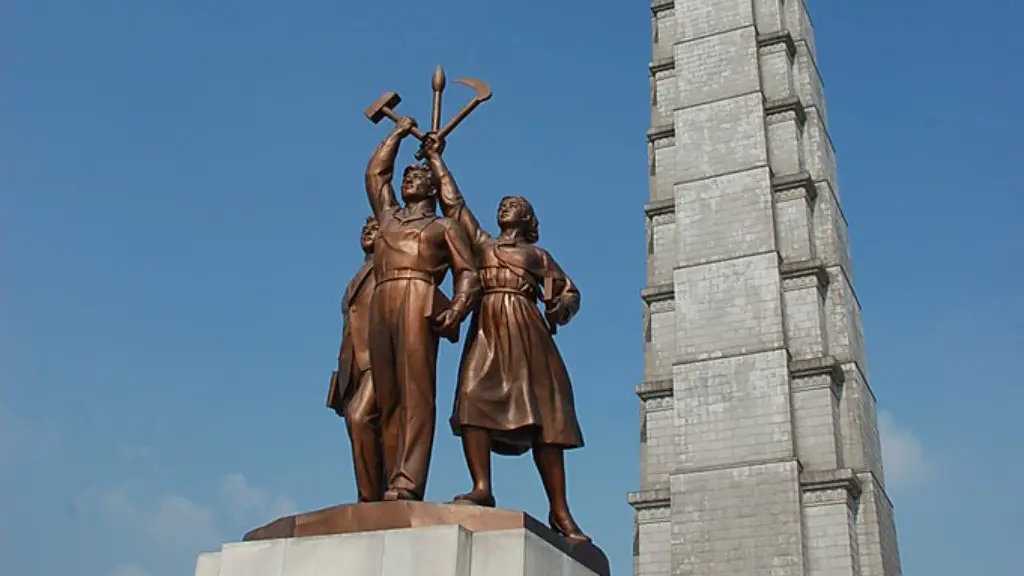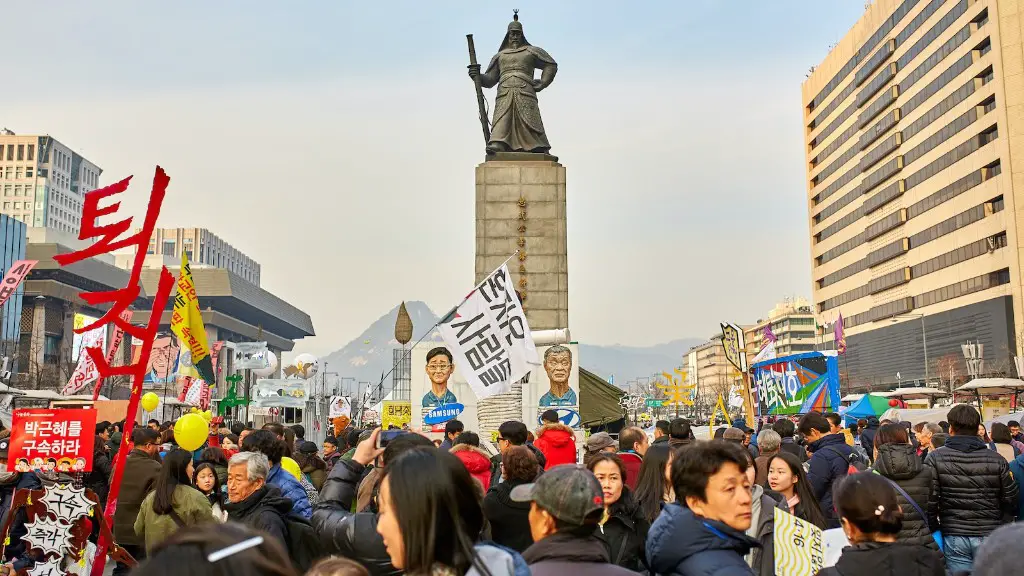Introduction
North Korea’s efforts to acquire nuclear weapons began in the 1950s, shortly after the end of the Korean War. Despite decades of international pressure and sanctions, the secretive totalitarian government in Pyongyang has continued to pursue its goal of becoming a nuclear power. In January 2016, the Democratic People’s Republic of Korea (DPRK) claimed to have conducted its fourth nuclear test and second of a thermonuclear device. This declaration followed a series of progressively more powerful nuclear tests in 2006, 2009 and 2013, raising global concern about North Korea’s nuclear capabilities and intentions. This article looks at the timeline of events leading up to the DPRK’s acquisition of nuclear weapons, exploring the implications and ramifications for the region and beyond.
Early Development
North Korea began developing its nuclear program in the 1950s, with the opening of the Yongbyon Nuclear Research Center in 1958. The DPRK officially acceded to the Nuclear Non-Proliferation Treaty (NPT) in 1985 and continued to pursue nuclear capabilities, signing a denuclearization agreement with the United States in 1994. Under the terms of the agreement, North Korea agreed to freeze and eventually dismantle its nuclear weapons program in exchange for the provision of alternative energy sources and other forms of aid. However, the agreement was not fully implemented and the country continued developing its nuclear capabilities.
Nuclear Tests
In October 2006, the DPRK announced that it had successfully conducted its first-ever underground nuclear test, despite mounting international pressure. The test – which had an estimated yield of one kiloton – was widely condemned by the international community, with the United Nations Security Council imposing sanctions in response. North Korea made further advances in 2009 when it conducted a second nuclear test, this time with a yield of roughly two kilotons. In 2013, the DPRK conducted a third nuclear test and declared that it had succeeded in carrying out a “great leap forward” in “bolstering its nuclear deterrent”.
2016 Nuclear Test
In January 2016, the DPRK conducted its fourth nuclear test and announced the successful detonation of a thermonuclear device – commonly referred to as a hydrogen bomb. This nuclear test marked a qualitatively different milestone in the development of North Korea’s nuclear capabilities and prompted global warnings of renewed tensions in the region. Following the test, the United States and Japan both condemned the move, with the US declaring that it would seek stronger sanctions against the DPRK. China and Russia were also quick to express their disapproval of the test, with both countries reportedly in favor of dissuading the North Korean government from further nuclear testing.
Implications
The acquisition of nuclear weapons by the DPRK has raised a number of serious concerns, both regionally and globally. The primary concern is the fact that the isolated nation now potentially has the capability to launch a nuclear strike on any of its neighbors, and may use this power to pursue its regional disputes. This could lead to a regional and global arms race, as other nations in the region seek to acquire their own nuclear capabilities. Furthermore, the North Korean regime’s status as an international pariah could impede efforts to reach a successful resolution to the current crisis.
Political Impacts
The nuclearization of the Korean peninsula has already had far reaching political impacts. The US has taken a hard line stance on North Korea, threatening the nation with tougher sanctions and vowing to hold Pyongyang accountable for its actions. North Korea has responded in kind, regularly issuing threats of preemptive nuclear strikes and responding harshly to any attempts at sanctions or other forms of pressure. The UN Security Council has also imposed additional sanctions on Pyongyang in response to the recent nuclear tests, though these have yet to have any visible impact on the regime.
International Action
The international community has been divided in its attempts to deal with the North Korean nuclear threat. While the United States has advocated for a hard line approach, with tougher sanctions and an increased military presence in the region, China and Russia have favored a more moderate stance, advocating for increased dialogue with North Korea. In 2017, China proposed a ‘double suspension’ in which the US and South Korea would suspend their regular military exercises in exchange for a similar suspension of weapons testing by North Korea. Despite this, US-North Korea relations continued to deteriorate, with the US imposing additional sanctions and the North Korean government launching a series of ballistic missile tests in response.
US-DPRK Relations
The North Korean nuclear crisis has significantly strained the US-DPRK relationship, with the latter refusing to capitulate to US demands and the former intensifying its efforts to contain and isolate the rogue nation. Sanctions have done little to sway the North Korean government and there are few signs of progress in resolving the current standoff, raising the prospect of a direct military confrontation. In this context, it is helpful to remember that the two countries have historically had diplomatic ties and that the United States has a vested interest in maintaining non-nuclear peace on the Korean peninsula.
Regional Repercussions
The nuclearization of the Korean peninsula has had wider regional implications, particularly for the northeast Asian region. The acquisition of nuclear weapons by the DPRK has led to increased military tensions not only between North and South Korea, but also with neighbouring countries such as China and Japan. The international community has responded with joint military exercises and increased military presence in the region, which have only served to escalate the situation. North Korea’s neighbours have also had to contend with the effects of economic sanctions and political isolation imposed by the international community, further increasing regional tensions.
International Response
The acquisition of nuclear weapons by the DPRK has prompted a coordinated response from the international community. Japan, South Korea, the United States and other nations have emphasized the need to maintain a denuclearized Korean peninsula, and the US and China have announced plans to coordinate efforts to achieve this goal. The United Nations has also kept the situation under close scrutiny and taken steps to impose sanctions on North Korea, while also keeping open channels of communication. Furthermore, the US has also threatened North Korea with military action should it carry out a nuclear strike or present an imminent threat.
Implications for International Security
The successful development of nuclear weapons by North Korea has been a major setback for international peace and security, raising the already significant risk of nuclear conflict in the region. The acquisition of nuclear weapons by the DPRK could spur other rogue nations to pursue similar capabilities, leading to the proliferation of nuclear weapons and a breach of international security. Furthermore, the presence of nuclear weapons in North Korea increases the risk of leakage to potentially hostile states and non-state actors, posing a significant threat to global security.
The Way Forward
Given the current state of affairs in the Korean peninsula, it is clear that the international community must take swift and decisive action in order to de-escalate the situation and prevent further nuclear escalation. Dialogue remains the primary tool for resolving the current situation, though the efficacy of this approach is limited by North Korea’s defiant stance towards the international community. The success of any strategy must be judged by its ability to address both the short-term and long-term implications of the DPRK’s nuclearization. Ultimately, only a collaborative and sustained effort will bring about a lasting resolution to the crisis.



